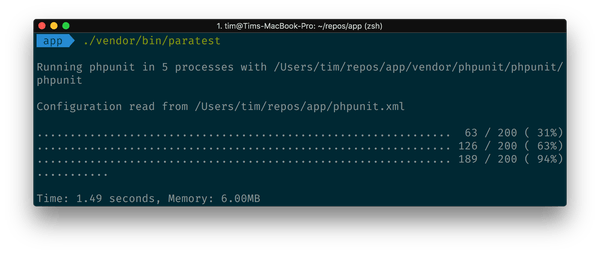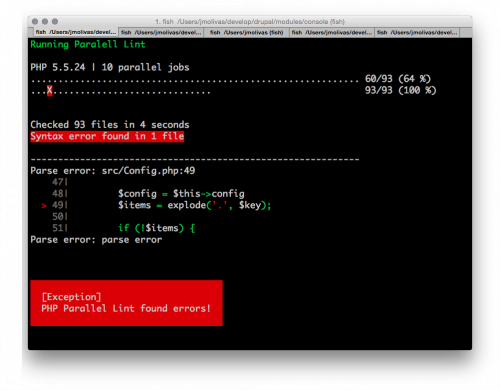
I came across this collection of “Tips to Speed up Your PHPunit Tests“. Apart from the few usual ones, like disabling XDebug and using groups, I found a couple that linked to handy tools:
- ParaTest – a PHPUnit extension that runs PHPUnit tests in parallel, significantly minimizing the test run time, and
- PHPUnit Report – a tool that visualizes test run times, clearly showing which unit tests take the longest to run.

Very cool! Needs trying …

